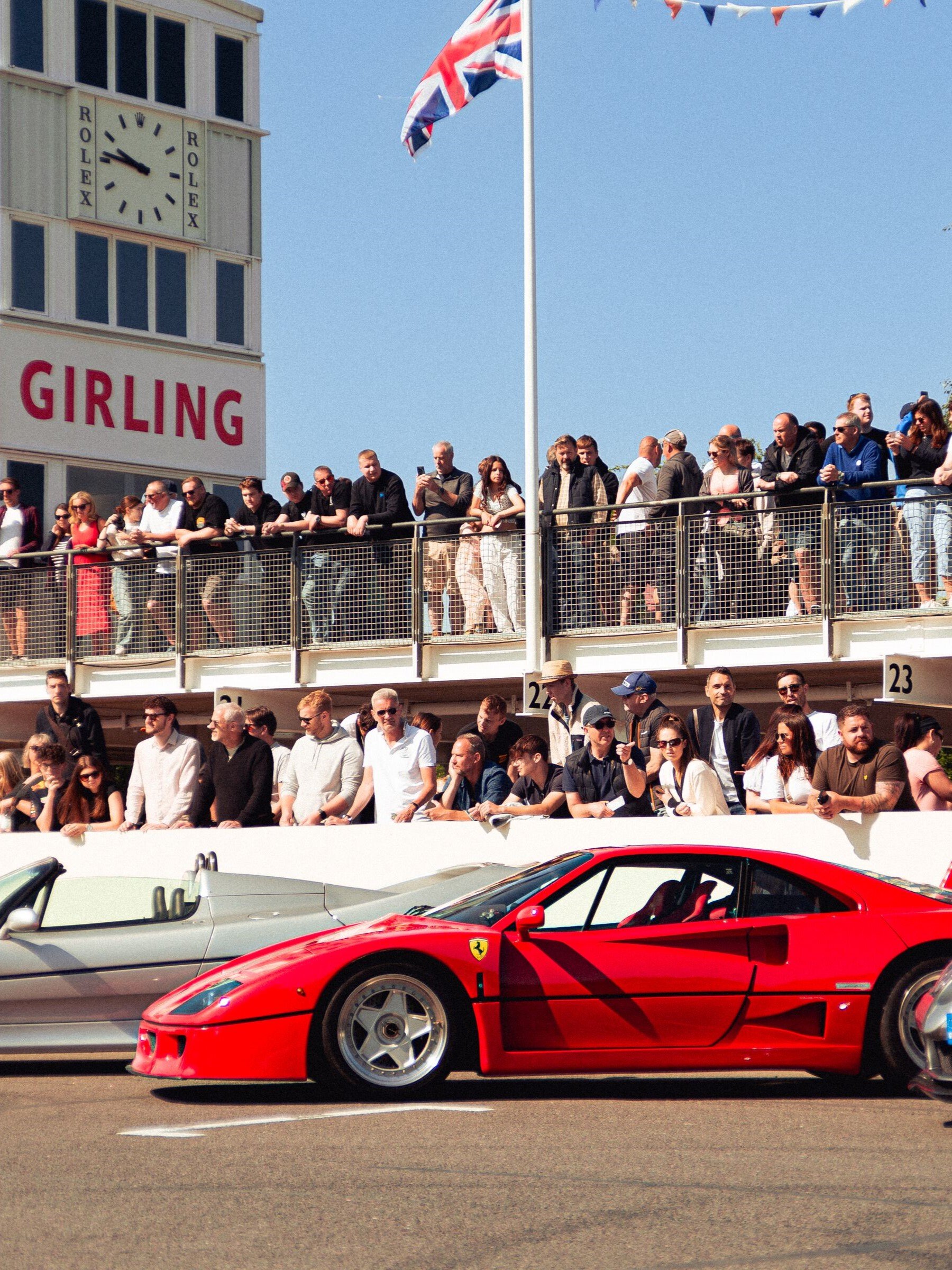Famous Five... Rally Catalunya classics
If you’re up to speed on your current affairs, you’ll know that the Spanish region of Catalonia is very much in the news this week, for reasons we won’t go into here. In a motorsporting context, however, the northeastern region hosts this week’s Rally Catalunya, round 11 of the 2017 World Rally Championship.

The event has been run since 1957 and, following its merger with Rally Costa Brava, a European Championship classic, in 1988, it’s been on the WRC calendar every year since 1991, with the exception of 1994 when it counted only towards the Formula 2 Championship for two-wheel-drive machines.
The rally was based in Lloret de Mar until 2002 when it moved to the Costa Daurada town of Salou. It attracts hordes of enthusiastic fans, who line the switchback Tarragona roads for a close-up glimpse of their heroes. As has been de rigueur since 2010, crews tackle the opening leg on gravel and the second and third on asphalt, making it the WRC’s only mixed-surface event.
As we get ready for the next installment of WRC 2017 after a six-week break, and the run-in for the Drivers’ title between Ford pair Sébastien Ogier and Ott Tanak, Hyundai number one Thierry Neuville and Toyota’s Jari-Matti Latvala, we’ve chosen five events from the past 25 years in Catalunya that have stood out, whether it’s for unexpected wins, intra-team squabbles, last-stage crashes or spectator-pleasing diversions.
1995 – Colin v Carlos
Emotions boiled over in the Subaru camp when Prodrive team boss David Richards ordered his drivers, Carlos Sainz and Colin McRae, to hold station once erstwhile leader Juha Kankkunen had crashed off the road and the blue-and-yellow Imprezas found themselves running one-two. A disgruntled McRae disobeyed the orders, put in place to stop the two drivers racing each other and jeopardising their positions, to ‘win’ the rally, only to reluctantly incur a time penalty at the end, handing victory to local hero Sainz. It all paled once Toyota’s elaborately illegal turbo restrictors had been discovered at post-rally scrutineering. In what was one of rallying’s biggest scandals, the Japanese marque was thrown out of the rest of the 1995 championship and benched for ’96.
1999 – Bugalski’s first for Citroën
With 97 wins, Citroën is the WRC’s most successful manufacturer, topping the table by 11 wins from Ford. The French marque’s winning spree began on the Catalunya asphalt back in 1999 with Frenchman Philippe Bugalski. And he did it in the two-litre non-turbo Xsara Kit Car, whose light weight and nimble handling gave it an advantage over its more powerful but heavier WRC-spec rivals. It was Bugalski’s team-mate Jesus Puras who made the initial running, leading for the first eight stages before electrical woes put paid to his efforts. Bugalski took over at the front and held his nerve for the final 10 stages to make history for Citroën. His margin over second-placed Didier Auriol in the Toyota Corolla WRC was more than half a minute, with reigning World Champion Tommi Mäkinen a distant third for Mitsubishi. Bugalski won next time out in Corsica too, a victory that remains the last in the WRC for a two-wheel-drive car.
2002 – Panizzi’s bridge too far
Peugeot’s asphalt king Gilles Panizzi had a comfortable lead in the 2002 rally as he fired the #3 206 WRC into Stage 15, Viladrau, with three more to run. As he approached the huge La Fullaca viaduct, on and around which thousands of fans had waited patiently since sunrise to catch the action at the left-hand hairpin underneath it, Panizzi deliberately ran deep into the hairpin’s run-off area, nipped up the hydraulic handbrake and pirouetted the car neatly through a pair of 360-degree spins. The crowd went berserk as Panizzi donuted underneath them. With approximately 10 seconds lost to his gymnastics, an unflappable Panizzi disappeared up the road to take his second consecutive win of the season, although co-driving brother Hervé looked rather non-plussed after the impromptu performance that hadn’t been in his pace notes!
2004 – Markko fully focused
Estonian ace Markko Märtin had something of a late-season flourish in 2004 aboard the M-Sport Ford Focus WRC. He and British co-driver Michael Park had won on the gravel stages of Rally Mexico earlier in the year but had had to give best to Citroën’s Sébastien Loeb and Subaru’s Petter Solberg as they fought over the victories during the bulk of the season. When the WRC arrived on the island of Corsica in mid-October, however, Märtin was in cracking form, guiding the Focus to a two-minute victory over acknowledged asphalt master Loeb. And his devastating form continued next time out in Catalunya when he took control after seven of the 20 stages to secure hugely popular back-to-back wins.
2015 – Ogier out, Mikkelsen in
A rare mistake from Volkswagen Polo star Sébastien Ogier, who understeered into the barrier – and instant retirement – on the outside of a series of medium-speed esses in the very last stage of the 2015 rally, handed a maiden WRC win to his team-mate, Andreas Mikkelsen. The Norwegian only learned of leader Ogier’s Duesaigues Stage blunder at the end, believing he’d finished second to the double World Champion. The crew’s reaction was classic, with countryman Ola Floene crying as he realised he’d become the first Norwegian co-driver to win at rallying’s top level. It didn’t take long for Ogier to bounce back; the Frenchman took his fourth consecutive Rally GB win next time out to seal his third straight Drivers’ title.
Photography courtesy of LAT Images
WRC
Rally Catalunya
sebastien ogier
colin mcrae































































